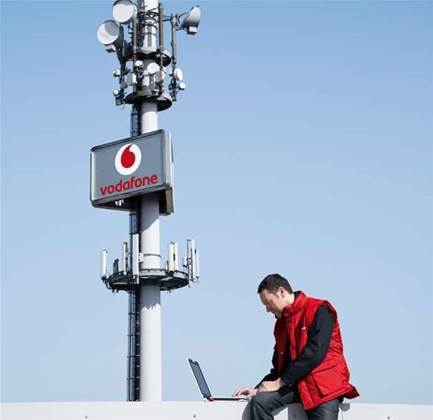Vodafone Australia is carving out negligible NBN margins from its 33,000 customers but is not ready to give up on the network, arguing there needs to be a way to “make it work”.

CEO Iñaki Berroeta told the company’s 2018 results briefing late Wednesday that the company’s year-long foray into NBN had been undertaken because it was seen as being “good for business”.
“We said we were doing this because it is a very complementary product to our customers and that’s why we believe it’s a good business,” he said.
“We never thought that this was going to bring much margin into the business, and unfortunately time has proven [this] right - not just for us but for many others.”
Berroeta said that by the time the wholesale access cost, backhaul, modem and other costs were taken into account, there was little left in the way of profit.
“Regardless of how efficient and how good you are at running your business, the opportunity to get any margin out of [the NBN] on the current retail pricing is challenging, to say the least,” he said.
“Ultimately the [players] with big market share grow their market share, but the NBN - for one reason or another - has made the life of new entrants or smaller players quite complicated.”
Berroeta’s comments came just hours after Vocus said it would stop participating in what former NBN Co CEO Bill Morrow called the “land grab” for new residential connections as the NBN is rolled out.
Saying there was “no profit margin” in NBN sales, Vocus said it would continue to offer residential services but just not bother promoting them anymore.
Vocus is instead hoping to sign customers up to more profitable wireless and mobile services based on 5G technology, via an agreement with Optus.
Berroeta, however, said he was not ready to give up on the NBN just yet.
“Because there is so much [financial] commitment in the network and because it has the ability to create a good infrastructure for the future, I think what is important is not just to say what doesn’t work but also to understand how can we make it more viable for everyone,” he said.
“We believe we all need to find a way for the NBN to be the main way to provide home broadband or fixed broadband because I think that’s in the interests of everyone.
“But what needs to change is probably complex.”
Berroeta was unconvinced that a writedown of the NBN’s value would lead to more viable pricing.
“I just think sometimes the people who are talking about writedowns are not really looking into how to improve the market, they are looking at it from personal or company interest [perspective],” he said.
He believed that any solution needed to use, as its starting point, a sustainable, long-term future for the NBN, where connectivity improved and retailers could compete.
“The solution should not start by the writedown,” he said.
Berroeta also somewhat cheekily suggested that NBN’s cost base could be reduced if it wasn’t paying Telstra as much under the definitive agreements.
Telstra CEO Andy Penn has been pushing for large cuts to NBN wholesale pricing, but Berroeta said this was against the backdrop of a “disproportionate amount of payments being made to Telstra” by NBN Co.
“That’s something that’s going to remain there for a long time,” he said.
“If the NBN needs to be cheaper but the payments to Telstra need to be expensive, it looks like it’s not simple.
“Sometimes it’s interesting when Telstra are saying the NBN should be cheaper but they are making $2.5 billion per year out of that NBN. So that’s maybe a way to make it cheaper. I don’t know - it’s an idea.”
Vodafone has, in the past, levelled criticism at Telstra over other issues, such as universal service obligation payments, and the chance to take another swipe at Telstra was not passed up.
Vodafone Hutchison Australia recorded a $124.4 million loss for its full year results.
It added 211,000 mobile customers for a total of 6.02 million, but said that strong competition meant average revenue per user was falling.
On the issue of how it might tackle a future 5G network build, Berroeta said the company is still examining its equipment options.
Vodafone said last year that the government’s ban on Huawei equipment in 5G networks could change the economics of builds, such as its own.
“It’s not a secret that we were basically an Ericsson core with the Huawei radio access network [for 4G,” Berroeta said.
“There is still a long time to be using 4G but eventually every service that we provide on 5G will have to be on a different equipment than Huawei and that is currently the object of our planning.”


_(28).jpg&h=140&w=231&c=1&s=0)
_(20).jpg&h=140&w=231&c=1&s=0)
_(23).jpg&h=140&w=231&c=1&s=0)




_(26).jpg&w=100&c=1&s=0)

 iTnews Executive Retreat - Security Leaders Edition
iTnews Executive Retreat - Security Leaders Edition











_(1).jpg&h=140&w=231&c=1&s=0)



